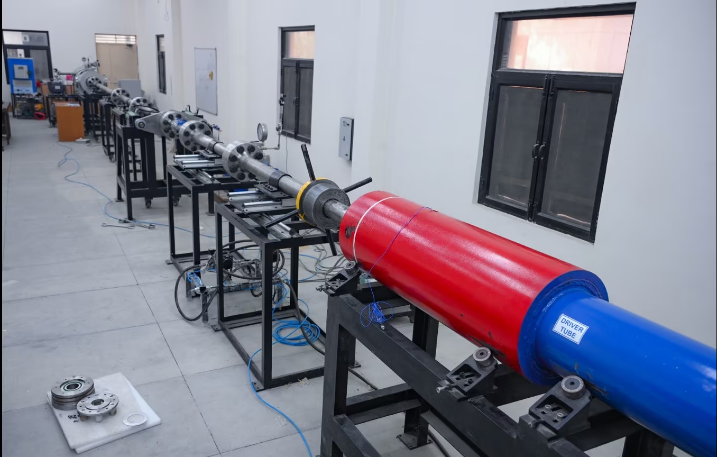Context:
The Indian Institute of Technology Kanpur (IIT-K) has recently developed and tested India’s first Hypervelocity Expansion Tunnel Test Facility.
About India’s First Hypervelocity Test Facility:
- The facility, named S2 or ‘Jigarthanda’, is a 24-meter-long facility located at IIT Kanpur’s Hypersonic Experimental Aerodynamics Laboratory (HEAL) within the Department of Aerospace Engineering, IIT-Kanpur.
- It is an expansion tunnel in an aerodynamic testing facility that is capable of generating high-energy test conditions with negligible or no ionization for achieving the goal of high speeds for an aircraft.
Design and Development:
- Indigenous Development: Designed and developed over three years by the Department of Science and Technology (DST) and IIT Kanpur.
- Funding: Supported by the Fund for Improvement in S&T Infrastructure (FIST) and the Aeronautical Research and Development Board (ARDB) of DST.
Speed Range and Capabilities:
- Capable of generating flight speeds between 3-10 km/s.
- Simulates hypersonic conditions during atmospheric and asteroid entry, scramjet flights, and ballistic missiles.
Significance:
- For ISRO and DRDO: Critical asset for the Indian Space Research Organisation (ISRO) and the Defence Research and Development Organisation (DRDO).
- Testing Ground: Facilitates testing for ongoing missions like Gaganyaan, Reusable Launch Vehicles (RLV), and hypersonic cruise missiles.
- Global Standing: Places India among a select few countries with advanced hypersonic testing capabilities.
- Capacity Boost: Major enhancement for India’s space and defense sectors, fostering the development of advanced hypersonic technologies.
Implications for India:
- Technological Advancement: Enables the development of more advanced and reliable aerospace technologies.
- National Security: Strengthens India’s defense capabilities and readiness.
- Scientific Achievement: Marks a significant milestone in India’s scientific and technological capabilities.

